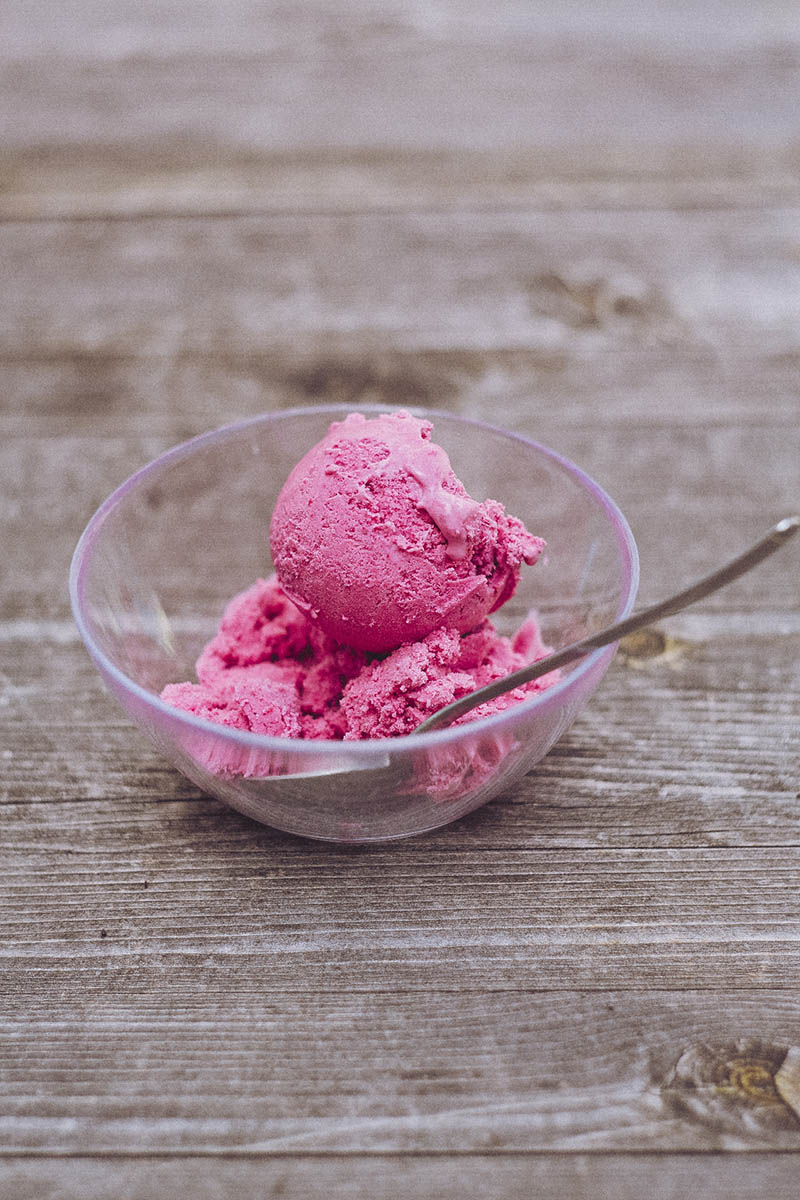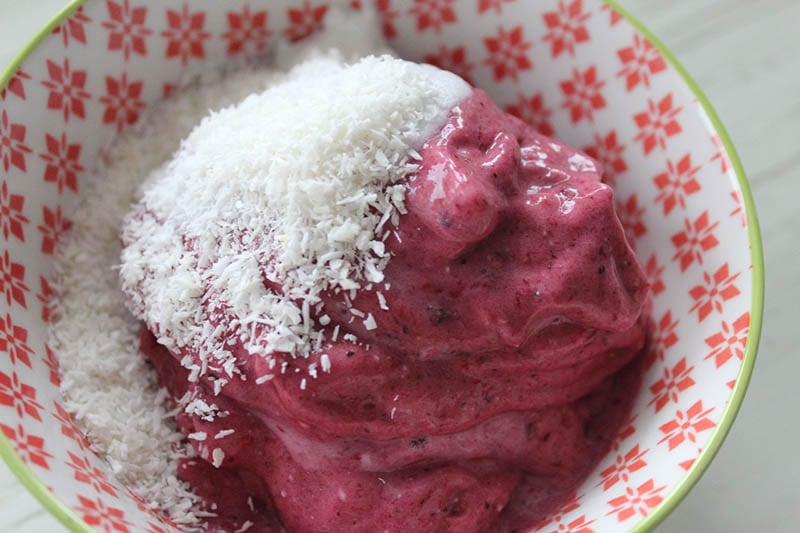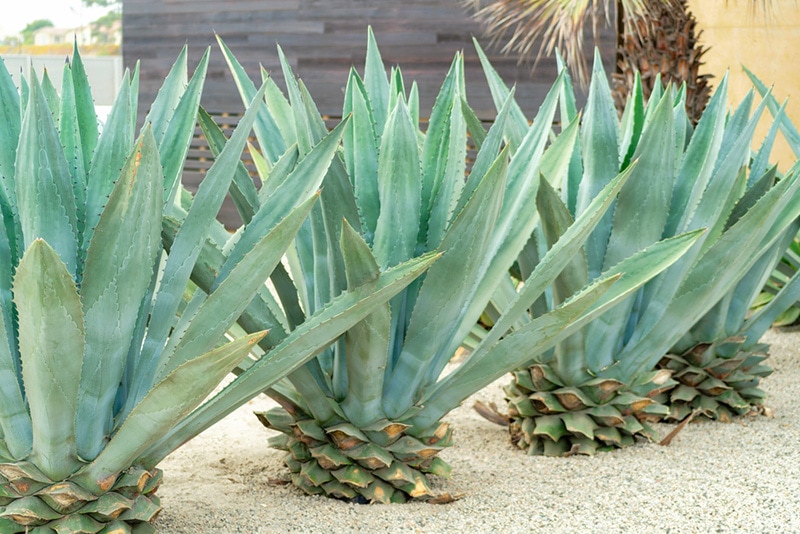Eating a cold and refreshing bowl of sherbet on a hot summer day sounds incredibly appealing, and it’s quite likely that your dog is watching every spoonful going into your mouth. This is the point when you wonder if it would be okay to give some to your dog.
While giving your dog an occasional bite of sherbet is not necessarily harmful, it isn’t healthy for them. This is especially true if you have a dog with digestive or allergy issues.
Here, we tell you more about sherbet and why it isn’t the best snack choice for dogs. We also provide refreshing alternatives that are healthier.
A Little About Sherbet
Sherbet started as “sharbat,” which is a Persian word that describes an iced fruit beverage. It has also been called “sherbert,” but technically, that’s just a different spelling and is commonly thought to be a mistake.
What we know as “sherbet” is a frozen dessert made with pureed fruit, sugar, 1% or 2% milkfat from cream or milk, and occasionally, egg whites. It comes in almost any fruit flavor that you can imagine: watermelon, blueberry, peach, raspberry, etc.
If the milkfat used in the sherbet is less than 1%, it is usually called water ice, otherwise known as sorbet. If the milkfat is between 2% and 10%, it’s sherbet or a frozen dairy dessert. Above 10%, you’ve got ice cream.
Overall, sherbet is a healthier version of gelato and ice cream because it doesn’t contain as much fat. But it doesn’t provide us or our dogs with any significant health benefits.
Should Dogs Eat Sherbet?
No, it’s just not a good idea. If your dog happens to take a few licks of some sherbet, they will likely be fine. But giving your dog large quantities or frequently offering it to them is not recommended.
Let’s break down the main ingredients to provide you with a better understanding of how sherbet can potentially affect your dog.
Sugar
Sugar in small amounts on occasion won’t usually harm your dog. But too many sugary treats, particularly over an extended period, will cause health problems.
Sugar in a dog’s diet, particularly if it’s an ongoing treat, can lead to obesity and even pancreatitis for some dogs. With high blood sugar, there’s also a risk of diabetes. Not enough tooth brushing and too much sugar can lead to gum disease.
Be wary of artificial sweeteners. Xylitol is quite toxic for dogs and can be lethal.
While a small amount of sugar is fine, it is an unnecessary ingredient that won’t do your dog any favors.
Milk
Sherbet has much less fat from a dairy source than ice cream, but dairy is in it nonetheless. Some dogs might experience stomach upset with vomiting and diarrhea, which might potentially stem from a food intolerance.
Specifically, your dog might be lactose intolerant, which will give your dog gastrointestinal problems like bloating, gas, vomiting, and diarrhea. It can also present as a food allergy, with red, itchy, and irritated skin.
Just like sugar, too much fat can lead to obesity and potentially pancreatitis.
Fruit
Dogs can eat a wide variety of fruit, but some fruits are toxic for dogs, particularly grapes. While fruit is one of the healthier ingredients in sherbet, it’s still a source of sugar. Any dog struggling with weight issues or diabetes shouldn’t have too much fruit.
- Strawberries (cut up to avoid choking)
- Blueberries
- Bananas (sparingly, and never feed your dog any of the peel)
- Watermelon (remove the seeds and rind)
- Cranberries
- Blackberries (small amounts only)
- Raspberries (small amounts only)
- Oranges (small amounts only)
- Apples (core and seeds removed)
- Peaches (remove pit)
- Mangoes (remove skin and pit)
- Pineapple
- Pears
- Grapes/currants/raisins
- Cherries
- Wild berries
- Avocado
- Tomatoes
While there aren’t that many tomato or avocado sherbets around, even ones with safe fruits should only be eaten in moderation. Fruit can also potentially cause gastrointestinal upset in some dogs.
Safe Cold Treats for Dogs
In general, it is best to avoid any “treats” for dogs sold by fast food places, including popsicles and ice cream cones. Most of these are full of sugar, fat, and sometimes artificial sweeteners. They are unhealthy and potentially dangerous for dogs! Here are a few safe dog treats that you can make yourself:
- Freeze dog-safe fruits and vegetables, such as chunks of strawberries, peaches, and bananas. You can also try blueberries, green beans, and asparagus.
- Use store-bought frozen fruit and veggies. Just double-check that there aren’t any added ingredients, and stick with the safe fruits.
- Purée fruit like cantaloupe, watermelon, or honeydew. Fill molds or ice cube trays with the puree, and freeze.
- Use plain yogurt or coconut milk with no additives, and mix a small amount with puréed fruit. Place the mixture in a bowl and freeze.
- Add a dollop of all-natural peanut butter with no additives (no salt or sugar) to puréed bananas and freeze.
- Blend cooked veggies like carrots with cooked chicken (with no seasonings) and chicken broth or plain yogurt, and freeze.
- You can use any of the above mixtures, fill a favorite chew toy and freeze so your dog can enjoy a good chewing session.
Any of these ideas will help you make satisfying and cooling treats for your dog. Also, you know exactly what is in them, so there are no unhealthy or potentially dangerous ingredients.
Conclusion
While a small amount of sherbet won’t hurt your dog, too much (especially over a long period of time) can potentially lead to health issues such as obesity or diabetes or simply the uncomfortable symptoms of lactose intolerance. Treats with too much sugar aren’t worth any of that.
Try making your own homemade frozen treats. Remember that as healthy as fruit is, it should only be eaten in moderation. Also, note that homemade popsicles made with fruit juice have double the amount of sugar.
Speak to your vet before you make any significant changes to your dog’s diet. They can also help you with more suggestions for safe, healthy, and delicious treats for your dog to enjoy.
See also:
- Can Dogs Eat Pita Chips? Vet-Reviewed Nutrition Facts & FAQ
- Can Dogs Eat French Fries? Vet-Reviewed Nutrition Facts & FAQ













